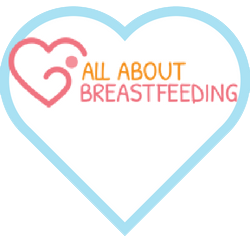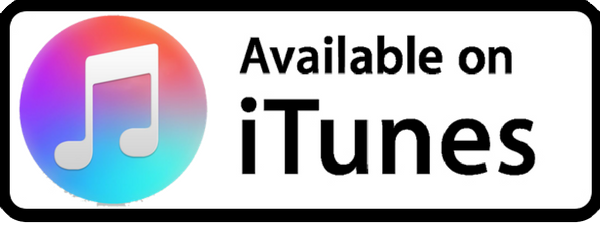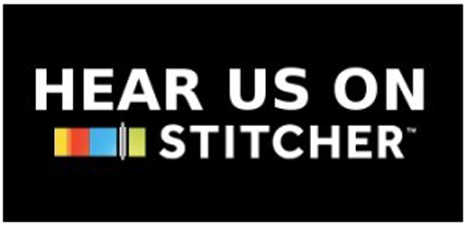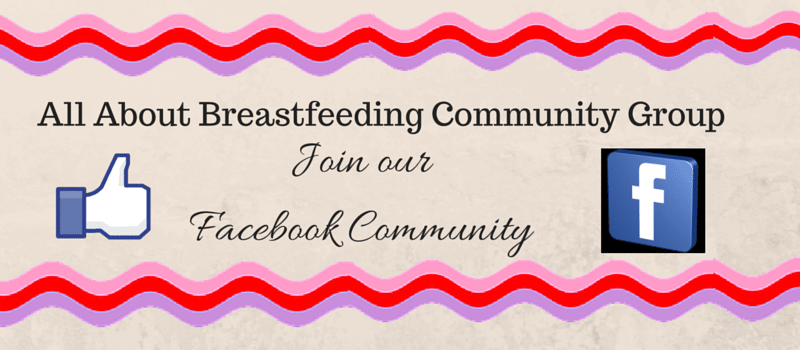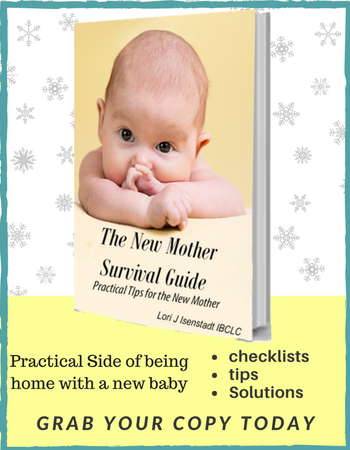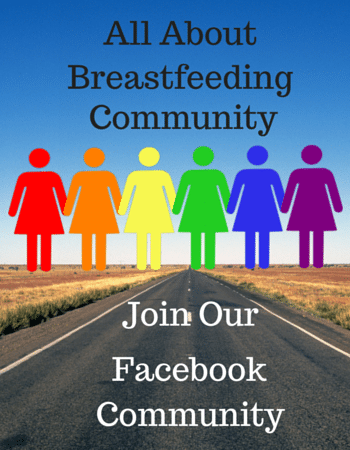Episode 374
I get a lot of great feedback from the Busting the Breastfeeding Myths Shows, so I am back today with another Busting the Myths Show.
When it comes to breastfeeding, it certainly seems like everyone is an expert. From your hair dresser with 5 breast fed babies _ I mean, why on earth would you not listen to everything she says all the way to your best friends second cousin who is a childbirth educator and what about your husbands mother who breastfed your husband – for a total of 3 months until she had to go back to work.
Admittedly, some of the pearls of wisdom and expert advice you receive from these breastfeeding moms could very well be right on target. They could also be the craziest, most cockamamie words of wisdom I ever heard. Honestly, I don’t doubt that some of the strangest things have worked for some, even though it defies all logic. But, that is the problem- by listening to all these different people, you could very well be messing with a good thing.
I do have to say that some things are so much better as some of the most craziest things have, thank goodness finally dissapeared from textbooks and from other moms sharing this poor advice – things like: you gotta spend weeks before the birth toughening up your nipples for breastfeeding by rubbing them with a washcloth for 10 minutes every day all the way to – you have to wash your nipples before breastfeeding.
Thank goodness it is rare that I hear these stupid statements anymore. They are just wrong, wrong, wrong. But, I still hear quite a few myths that continue to drive me insane.
You should only eat plain food while breastfeeding – it is one that I am frequently asked by new parents. I like to first start off by saying that if there are any known family allergies with either parent or other siblings, then it might be wise to stay away from these offending foods. Other then that, I advise mothers to eat a well balanced diet, just like they have been or know they should have been eating during their pregnancy. There is no real big need to change your eating habits based on the a whim or a fear or a proclamation from another family member of friend who said their baby was allergic to dairy or soy or wheat or corn or tomatoes. There is no real big need to take all spices out of your cooking and have a very bland diet – that is not fun or enjoyable for you. There is not major reason to cut out foods that people consider gassy, such as broccoli and cabbage.
Why are we removing foods from our diets before we even know if your baby will allergic to it? The hazards of doing so is that you could be taking away foods that your body needs and does well with, all because you think your baby might be allergic to it. My advice – eat a reasonably well balanced diet and if you do begin to suspect that your baby is reacting to something you are eating, then go do your due diligence in trying to figure out what it might be. If you think you know what it might be, begin by eliminating that food and see if there is a significant difference. If you are not sure, well, that is when checking in with an expert can be helpful. As an IBCLC, I can help guide you in this area. If the fix is rather simple and I can help you get to the bottom of it in a few days to 2 weeks, great. Beyond that, I might refer you to someone else who has expertise in this area.
So, please, eat and enjoy the foods you like and are good for you and don’t second guess what might not work well for your baby.
Another myth that is closely attached to the one about only eating plain foods is the myth that says mom have to eat “x” amount of additional calories and drink a certain amount of water if they want to make enough milk for their babies.
False, False, False – It is true that mother’s need to eat a balanced diet and get enough calories to support their nutritional needs and while it is true that mothers need to drink a fair amount of fluids, there is not a specific amount that you need to adhere to.
When it comes to foods, yes you do burn more calories when you are breastfeeding. But exactly how much, we don’t really know. If you read the literature, it will say between 200 and 600 calories a day. Well, which is it for you? That is a big spread if you ask me. It depends on your activity level and how can I possibly lump all breastfeeding women together and come up with a number.
When it comes to fluids, mothers need to drink enough water so they stay well hydrated for their own personal health and well being. Becoming dehydrated is not good for any human being. But to be told that they have to drink insane amounts of fluid in order to make enough milk for their baby is simply not true. To be told they need to drink more milk in order to make milk further increases the insanity of it all.
For instance, you could be drinking 150 oz of water a day, and yet, if your baby is not removing the milk frequently and efficiently, you are just not going to make enough milk for your baby. Extra fluids will help to support your milk volume, but it is not what is going to make you make a lot of milk. It is the frequency of the milk coming out that will help to increase your volume.
I will often see mothers coming in to my office carrying these very, very large containers with water and they will literally tell me that they are so full with drinking water that they are just not hungry enough to eat as much food as they know they should be. I tell them to keep the water to a reasonable level – the recommended 84 oz for most adults and make room to take in more calories.
Sure you need extra calories and sure you need additional fluids. For most women, if you are eating a balanced diet and similar to what you ate during pregnancy, you will probably do all right. If you are not feeling well or you are losing your postpartum weight rapidly, or if you have special circumstances – such as being a diabetic or other health issues, then meet with your physician or nutritionist who can take a look at you, as an individual and help guide you so you can meet your nutritional needs.
Ready for one more? Okay, let’s do it!
You should only breastfeed your baby for 1 year because after that it is no good anymore?
What do people mean when they say it is not good anymore? Are they truly saying that all the nutritional components of human milk is exactly what your baby needs for 365 days and then on the very next day – #366 it all goes to SHIT! Like the calendar turns to the next day and all of a sudden your milk has gone bad? gone sour? When I hear health care providers say this – I absolutely do challenge them. I ask them – What is it that you tell your patients is so good about breastmilk. Why are you encouraging your patients to breastfeeding? When they tell me, whatever it is they tell me, I then get to ask? And are you saying that all of that no longer exists on the day after 365 days?
They do look at me like I am crazy or annoying, but I really don’t care. I am trying to get them to acknowledge my point & that is that they are way off base and just do not know what they are talking about. If they are still within my presence and I have not totally annoyed them, I then ask them if it would be okay if I shared with them a few pieces of valuable information.
I tell them: Breastfeeding and human milk continues to be a valuable source of nutrition and disease protection for AS long as breastfeeding continues. There is no cut off point when it no longer becomes good. Why would a mother not want her child to benefit from the proteins and minerals and fat content of her milk. As a matter of fact, toddlers are well known for their poor solid food intake. Breastmilk can provide up to 30% of their energy requirements, 43% of their protein requirements, 36% of their calcium requirements, B12, Vitamin C and the list goes on and on. We have learned that antibodies are abundant in human milk throught the duration of lactation and there is no 366 days limit on the immune factors that not only continue to be passed on to their child, but that these immune factors increase in concentration during the second year.
I then end with _ Why on earth would you tell a mom to stop giving her child the best nutrition in the whole wide world. As a matter of fact, it is quite negligent to tell a mother to stop feeding her baby a significant portion of its daily food and vitamin requirements.
I pretty much stop the discussion at that point. In my online breastfeeding class though, I go into major detail about how important a mothers milk is and how it goes beyond nutritional value and is a very important part of a child’s mental and social development, never mind the continued benefits to the mother as the long she breastfeeds the more beneficial it is to her health. In my class you can learn all these details, but I stop at this point with other health care providers because I find they are just not really that interested. Here again – you need to have all the best information, the most current researched information so that you can make an informed decision on how long you would like to breastfeed.
Ready for one more? Okay, let’s do it!
Lack of teaching about breastfeeding in nursing and medical schools has resulted in mothers receiving inconsistent and inaccurate advice from health care professionals. New community programs can help breastfeeding families through parent-baby information telephone lines and breastfeeding support drop-in groups. Physicians and nurses can help breastfeeding mothers by keeping up-to-date and giving consistent information.
Your Online Breastfeeding Class
Learn how to breastfeed – Be comfortable. Be confident.
The learning continues well beyond the average breastfeeding basics class that is 60-90 minutes. In this class, we have over 15 hours of audio lessons, combined with many hours of videos to help support what you are learning. We cover breastfeeding and medication safety, what to do if your baby does not latch on, common breastfeeding challenges, tongue tie, premature babies, building a good supply, returning to work and pumping. Take a look at the list below and follow the link to the class page so you can see more specifics of what is covered. I want to ensure that we got you covered and that you have great support well beyond the newborn days.
- Using your pregnancy time to prepare for breastfeeding
- Tips on how to prepare your home for a newborn
- Specific details about the first 24 hours after birth.
- Exactly what to expect the first two weeks after birth
- What can you do if your baby is not latching on
- Common and not so common breastfeeding challenges
- What you can expect over the next few months
- Returning to work as a breastfeeding/pumping mom
- Pumping and storing your milk
- When to begin pumping and building your freezer stash
- How to make a smooth transition to postpartum life
- Lessons dedicated to partners and breastfeeding knowledge.
- Breastfeeding and the 1 year old
- Breastfeeding the toddler and beyond
- Tandem nursing
- Breastfeeding through a pregnancy
- Medication and mother’s milk
- Weaning
Once you register for the class, you have immediate access to:
- Audio Lessons
- Videos
- Educational handouts
- Helpful checklists
- Our “members only” group
- Weekly group LIVE Q&A sessions
Gain confidence in breastfeeding.
Expert advice from Lori J. Isenstadt, IBCLC who has over 25 years of experience in maternal health and lactation. I will help you navigate the ins and outs of breastfeeding.
Listen anywhere and anytime. Imagine not having to sit in a classroom or stare at a screen. You can learn all about breastfeeding while going for a walk, driving to work or running errands, traveling on a plane, train or bus. Because you can download the audios, learning is easy and convenient. Get ready to learn anytime whenever it’s convenient for you and your partner. You can be cooking dinner together and listening to the class. Perhaps relaxing together in the evening in your comfy clothes. You can learn together. Easy access to all class materials. Your class never expires. You’ll be able to listen and download the materials at your convenience.
You are not alone!
Once you are a student in the breastfeeding class, you have regular access to ongoing support for the whole time you are breastfeeding. You can have your questions answered by Lori J. Isenstadt, IBCLC, in our private group as well as our weekly live Q & A sessions. Just check out the Bonuses below to see how I provide you with ongoing support..
Exclusive Bonus #1
Immediate access to a private group for class students only. I will be answering your questions 5 days a week.
Exclusive Bonus #2
Invitation to join our weekly Q & A session with Lori and other students.
Exclusive Bonus #3
Need additional help? *25% discount off a private consult – for students only.
*If you are in the Phoenix metro area. use this link to schedule your Office or Home lactation consult.
*If you are out of the area, use this link to schedule a Skype call
Do you have a question about the class before you purchase? Send it to – aabreastfeeding@hotmail.com
 Register for the Breastfeeding class
Register for the Breastfeeding class
http://www.aabreastfeeding.com/audioclass
Additional ways to connect with me:
Like us on Facebook HERE:
http://bit.ly/2dNPlsC
Follow us on Twitter HERE:
@breastfeedingaz
http://bit.ly/2BfEIJ2
Follow us on Pinterest HERE:
https://www.pinterest.com/lorijisenstadt
Subscribe on iTunes the All About Breastfeeding show HERE:
https://apple.co/2FJGwsV
Lori J. Isenstadt, IBCLC
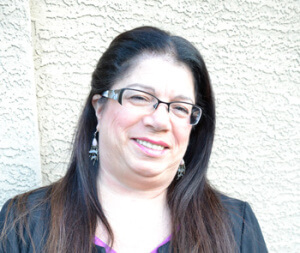 Lori Jill Isenstadt, IBCLC is a huge breastfeeding supporter. She has spent much of her adult life working in the maternal health field. Once she became turned on to birth and became a childbirth educator, there was no stopping her love of working with families during their childbearing years. Lori became a Birth doula and a Postpartum doula and soon became a lactation consultant. She has been helping moms and babies with breastfeeding for over 25 years. Lori founded her private practice, All About Breastfeeding where she meets with moms one on one to help solve their breastfeeding challenges. She is an international speaker, book author and the host of the popular itunes podcast, All About Breastfeeding, the place where the girls hang out. You can reach Lori by email at: [email protected] or contact her via her website: allaboutbreastfeeding.biz/contact
Lori Jill Isenstadt, IBCLC is a huge breastfeeding supporter. She has spent much of her adult life working in the maternal health field. Once she became turned on to birth and became a childbirth educator, there was no stopping her love of working with families during their childbearing years. Lori became a Birth doula and a Postpartum doula and soon became a lactation consultant. She has been helping moms and babies with breastfeeding for over 25 years. Lori founded her private practice, All About Breastfeeding where she meets with moms one on one to help solve their breastfeeding challenges. She is an international speaker, book author and the host of the popular itunes podcast, All About Breastfeeding, the place where the girls hang out. You can reach Lori by email at: [email protected] or contact her via her website: allaboutbreastfeeding.biz/contact

Submit a comment
your email address will not be published
